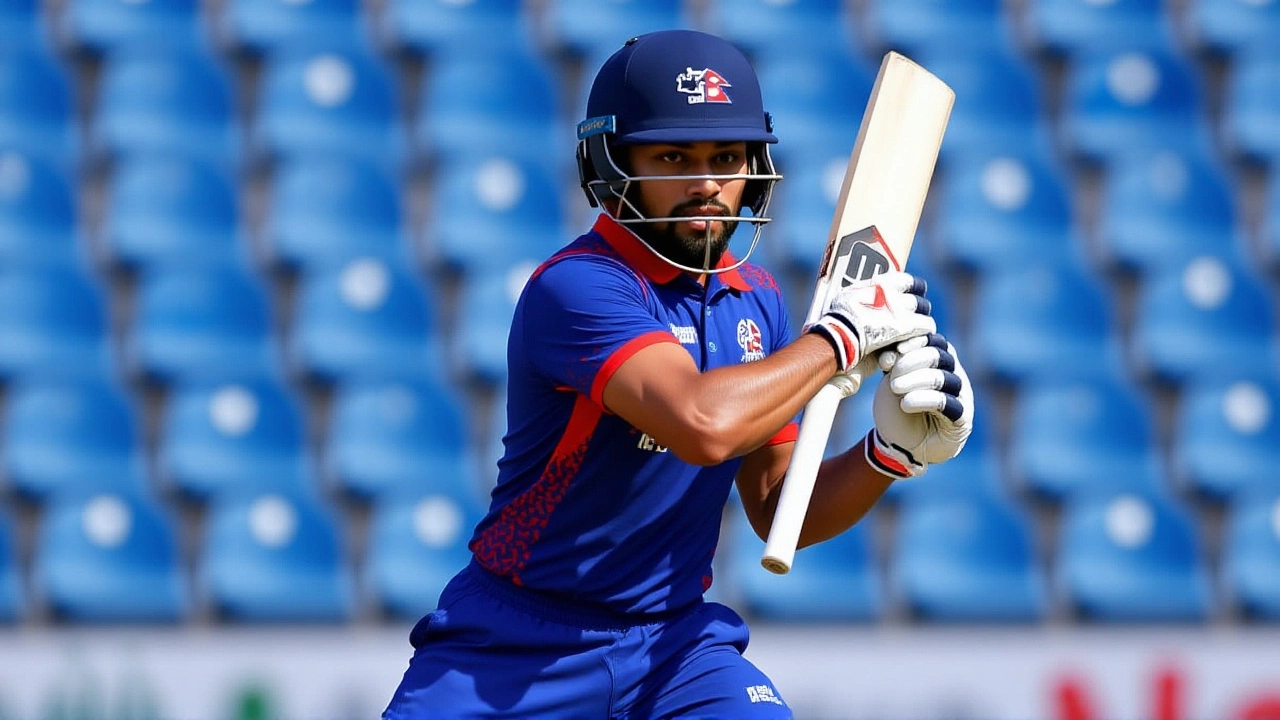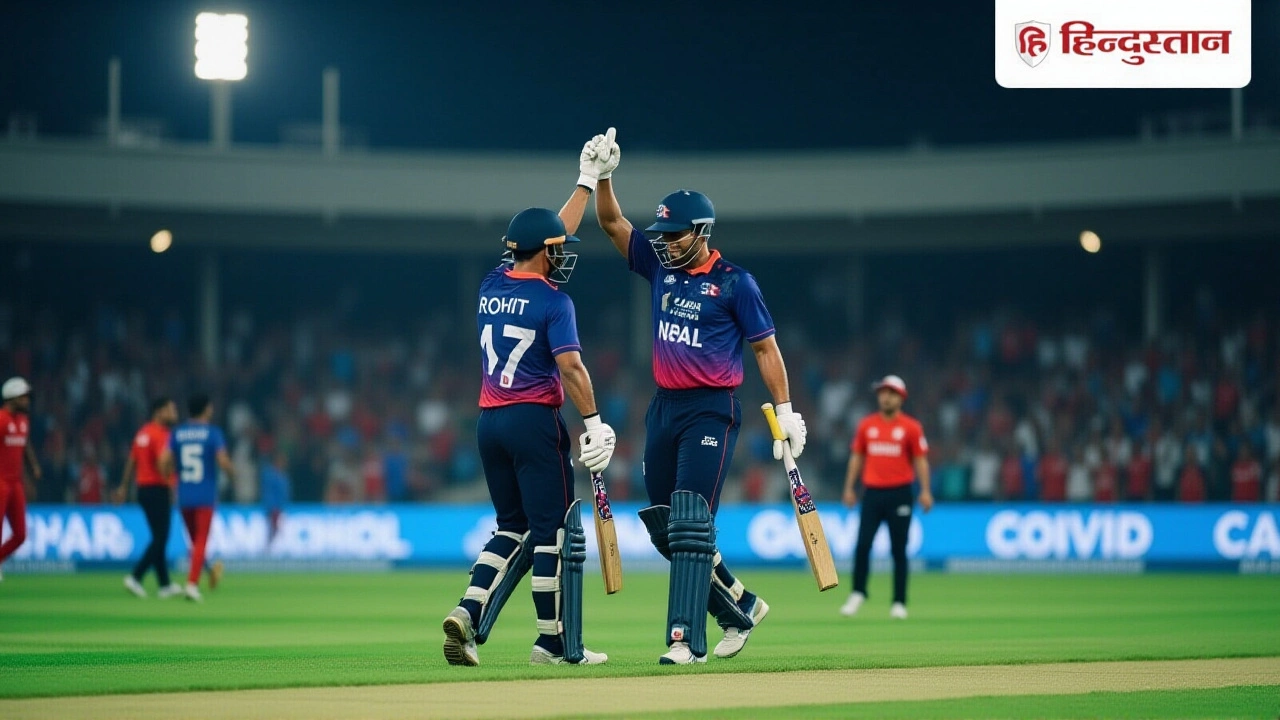When Rohit Paudel, captain of the Nepal national cricket team lifted the Player of the Match trophy at Sharjah Cricket Stadium on September 27, 2025, he didn’t just celebrate a historic win – he dedicated it to the martyrs of Nepal’s recent Gen Z protest movement. The victory, a 19‑run defeat of the West Indies, marked Nepal’s first ever triumph over an ICC full‑member side after 180 international outings. In the post‑match ceremony, Paudel said, “I want to dedicate this award to the martyrs back home who participated in the protest. The last month has not been great for us, so if we can give a little bit of happiness to the people of Nepal, I think that would be great.”
Historic T20I Victory Breaks New Ground
The match, officially listed as a T20I at SharjahSharjah Cricket Stadium, saw Nepal post 148/8 in 20 overs. Paudel contributed 38 runs off 35 balls, peppering the scoreboard with three fours and a six, before chipping in with a wicket – dismissing Jewel Andrew for 12.
West Indies captain Akeal Hosein won the toss and chose to field. Early pressure saw Nepal wobble to 12/2, but the middle order, anchored by Paudel, Kusal Malla (30 off 21) and Gulsan Jha (22 off 16), steadied the ship.
Match Narrative: How Nepal Outplayed the West Indies
The West Indian bowlers, led by Jason Holder (4/20) and Navin Bidaisee (3/29), were ruthless early on. However, Nepal’s fielding turned the tide when Kushal Bhurtel executed a crisp run‑out on opening batter Kyle Mayers for just five runs.
Defending 148, Nepal’s bowling attack was a collective effort. Bhurtel claimed two wickets, while Dipendra Singh Airee, Karan KC, Nandan Yadav, Lalit Rajbanshi, and Paudel each picked up one. The West Indies could only muster 129/9, with Bidaisee’s 22 off 25 the lone resistance.
Beyond the Boundary: The Political Backdrop
September 2025 was anything but quiet in Kathmandu. A nationwide ban on several social‑media platforms sparked a Gen Z‑led uprising against government corruption and digital repression. The protests turned violent, with public offices and political buildings vandalised. The unrest forced Prime Minister KP Sharma Oli and several ministers to resign.
On September 13, interim Prime Minister Sushila Karki was sworn in to steer the country through the transition. Though the streets quieted, the movement claimed several lives – now revered as martyrs.
Paudel’s dedication links the euphoria of sport with the sorrow of a nation in flux, underscoring how cricket can serve as a unifying balm during political upheaval.
Reactions: Players, Officials, and Fans Speak
“It’s more than a win; it’s a message of resilience,” said Cricket Association of Nepal president Binod Bhandari during a press conference. “Our boys showed the world that Nepal can compete with the best, even while we’re healing at home.”
West Indies bowler Jason Holder praised the Nepali side, noting, “Their fire was evident. They deserved this win.”
Fans in Kathmandu gathered around televisions in improvised community halls, cheering as Paudel lifted the trophy. Social‑media posts, now partially restored, flooded with hashtags like #NepalCricketRise and #MartyrsRemembered.
What This Win Means for Nepalese Cricket
Beating a full‑member nation unlocks new funding avenues from the International Cricket Council and raises Nepal’s ranking, potentially opening doors to more bilateral series.
Analysts, such as former England opener Alastair Cook, argue that the psychological lift could translate into better performances in upcoming qualifiers for the 2027 ICC World Cup.
For young cricketers back home, the match serves as proof that a village boy with a cricket bat can one day stand on an international stage, even amid national turbulence.

Frequently Asked Questions
How does this victory affect Nepal’s chances in upcoming ICC tournaments?
The win boosts Nepal’s T20I ranking, moving them closer to automatic qualification for the 2027 ICC World Cup qualifiers. Higher ranking also means better seedings and more opportunities to schedule series against full‑member nations, which in turn improve experience and exposure.
Why did Rohit Paudel choose to dedicate the award to protest martyrs?
Paudel grew up in Kathmandu and witnessed the unrest first‑hand. By linking his personal triumph to the fallen protesters, he aimed to bring a moment of national pride and healing, reminding Nepalis that their struggles and celebrations are intertwined.
What were the key moments that turned the match in Nepal’s favor?
Three moments stand out: Paudel’s aggressive 38‑run cameo, Bhurtel’s run‑out of Kyle Mayers early in the chase, and a disciplined death‑overs spell where Nepal bowled out the West Indies for 129, keeping the run‑rate low in the final overs.
Who are the main political figures behind the recent protests?
The protests were sparked by opposition to a social‑media ban imposed by Prime Minister KP Sharma Oli. After weeks of demonstrations, Oli resigned, and former chief justice Sushila Karki was appointed interim prime minister to oversee the transition.
Will the win influence cricket development programs in Nepal?
Yes. The Cricket Association of Nepal has already announced increased funding for grassroots academies and a new high‑performance center in Kathmandu, citing the win as motivation to nurture the next generation of international players.
